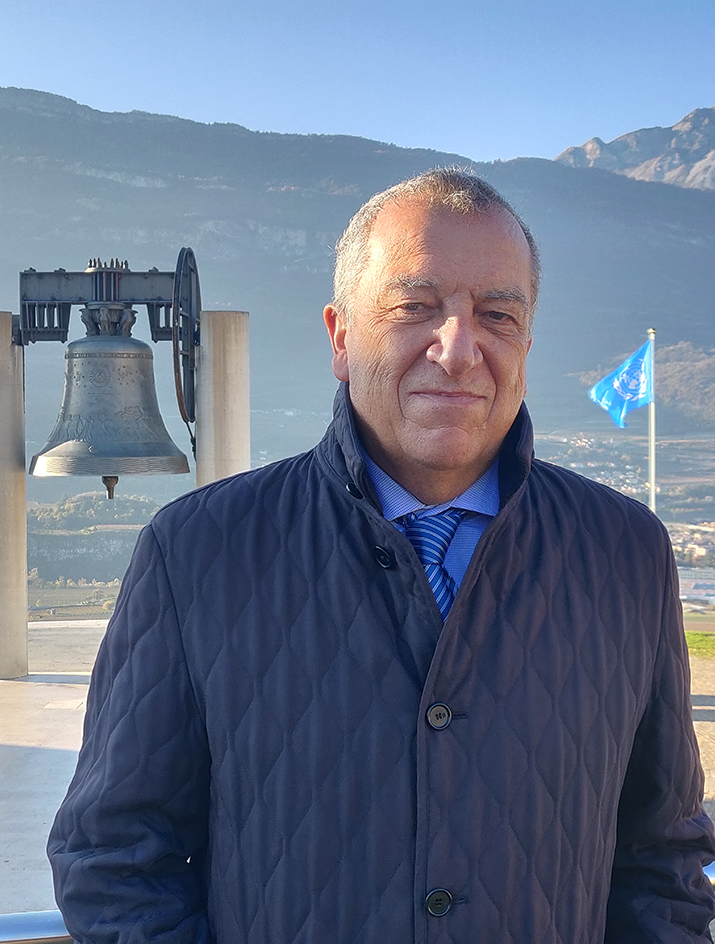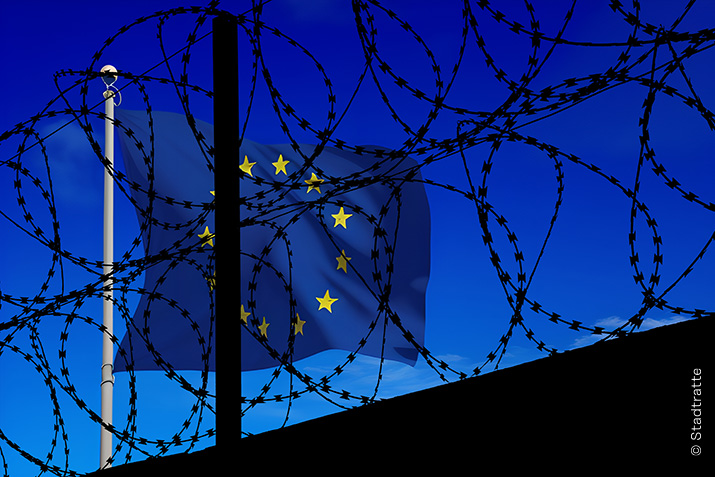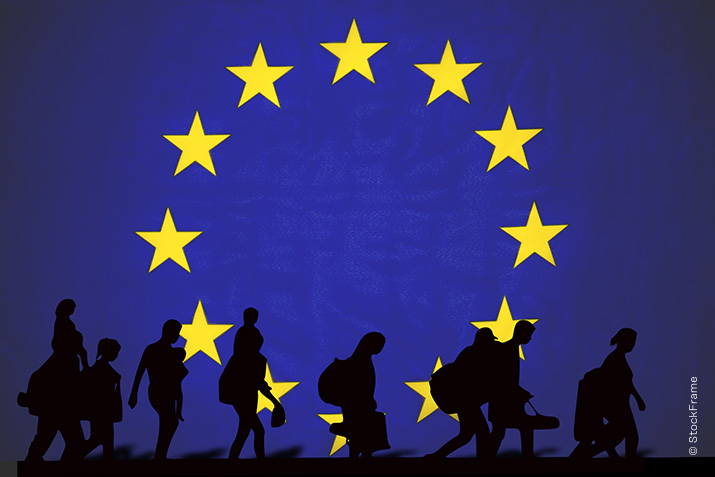Last April 10, the plenary session of the European Parliament established the new «Pact on Migration and Asylum» following years of complex debates (the first proposals date back to 2016). In the words of Ursula von der Leyen, a committed supporter of the approved legislation, «with the new “Pact”, which introduces a mechanism of mandatory solidarity, no country will be left alone. The rules now adopted will make external borders more secure, while protecting people's fundamental rights».
With this concise but at the same time "dense" comment, the President of the European Commission intended to make the most of the new legal norm, highlighting its ability to integrate very different, and until yesterday apparently irreconcilable, problems, namely the fundamental rights of migrants, safe borders and the sharing of responsibilities between the 27 members of the Union.
This statement, which sounds reassuring, if only for the authority of the source, did not however prevent the MEPs from expressing themselves in the Chamber, at the time of the vote, in a manner that was far from unanimous. If, in their considerable majority, the Democrats, Socialists and Liberals expressed themselves in favour of the new Pact, at both extremes of the chamber, both on the right and on the left, the vote was massively against it. This is confirmed by a clear end result, yes, but which cannot be defined as unanimous (322 in favour, 266 against and 31 abstentions). Vote deliveries often not coming from the parliamentary Eurogroups to which they belong, but rather from the party headquarters of the various capitals, ended up influencing the splitting of preferences (the Italian example is emblematic).
The critical voices include - and this is no surprise - practically all the non-governmental organizations involved in search and rescue operations or the management of migrants on the mainland. The most "enterprising" of these, the «Abolish Frontex», managed to block the debate in the Chamber for several minutes.
The above positive assessments of President von der Leyen were echoed on the Italian side by Minister of the Interior Matteo Piantedosi, who highlighted in particular the «rebalancing of responsibilities» introduced by the Pact. It is in fact widely known that the Dublin III regulation of 2014, currently in force, assigns the management of almost all asylum requests to the so-called «first entry» countries (including ours).
Without going into excessive details or technicalities, the Pact is made up of nine regulations, organically connected to each other. Through the new legislative measures, border controls will be strengthened, with specific pre-entry screening operations, and common procedures will be defined for the approval (or, where appropriate, revocation) of international protection, with the provision of a selection mechanism between those entitled to asylum and those destined to be "returned" to their regions of origin.
The new "package" also sets up collection centres for health and safety checks and to facilitate collaboration between States. Eurodac, a dedicated biometric database, will be managed by the European Union itself. In relation to solidarity, the «non-frontline» countries will implement measures to welcome a certain number of asylum seekers onto their territory or, alternatively, they will pay a financial contribution to those «first entry» states that are willing to accept a higher number of asylum seekers compared to their national "quota".
Statistical data reveals that the asylum applications presented in Europe in the first seven months of 2023 were over 600,000. It should be clarified that before definitively entering into force, the Pact will have to pass the scrutiny of the Council, i.e. the 27 governments of the Union. This voting is expected in the next few weeks with the foreseeable, but not decisive, contrary position of Hungary and Poland. However, finalization in the implementation of the national regulations appears to be more distant in time (24 months), to allow member states to introduce the measures necessary in order to adapt such regulations into their own.
We willingly entrust the final comment on the topic, a comment we agree with due to its impartial nature, to the President of the European Parliament, the Maltese Roberta Metsola: «The Pact will not magically solve all the problems overnight and there will still be much to do in order to make it happen regarding repatriations and collaboration with third countries. However, by adopting it, we have provided a valid response to one of the major concerns of European citizens».
As our final observation, we highlight how the Pact, with a timing that was certainly not random but the result of intense preparatory work, was approved by the European Parliament, practically on the eve of its dissolution. In June (coinciding with the publication of this issue of the «Voice») European citizens will be called to the polls to renew the community institutions. If the intention to express preferences for this or that political force is beyond us, due to a consolidated foundation, two outcomes, on the other hand, seem completely legitimate given their character of neutrality.
The first - which would deny forecasts that in truth are anything but encouraging - concerns the need for a consistent rate of participation in the vote, as a signal of interest and identification of the citizens of the 27 member countries with the Brussels institutions. The second is to be able to look beyond contingent interests and limited horizons.
The almost 360 million voters called to the polls will in fact have to express themselves, before any other consideration, on the model of Europe to which they wish to be a part in the future, both in terms of the numerous and varied (economic/financial, social/cultural, political) community acquis , as well as on the most appropriate positioning of the continent in an international setting in rapid and dangerously unpredictable change.
Neither are trivial issues, and the response must be up to challenges that, without exception, involve us all.
Reggente Marco Marsilli, Foundation President










